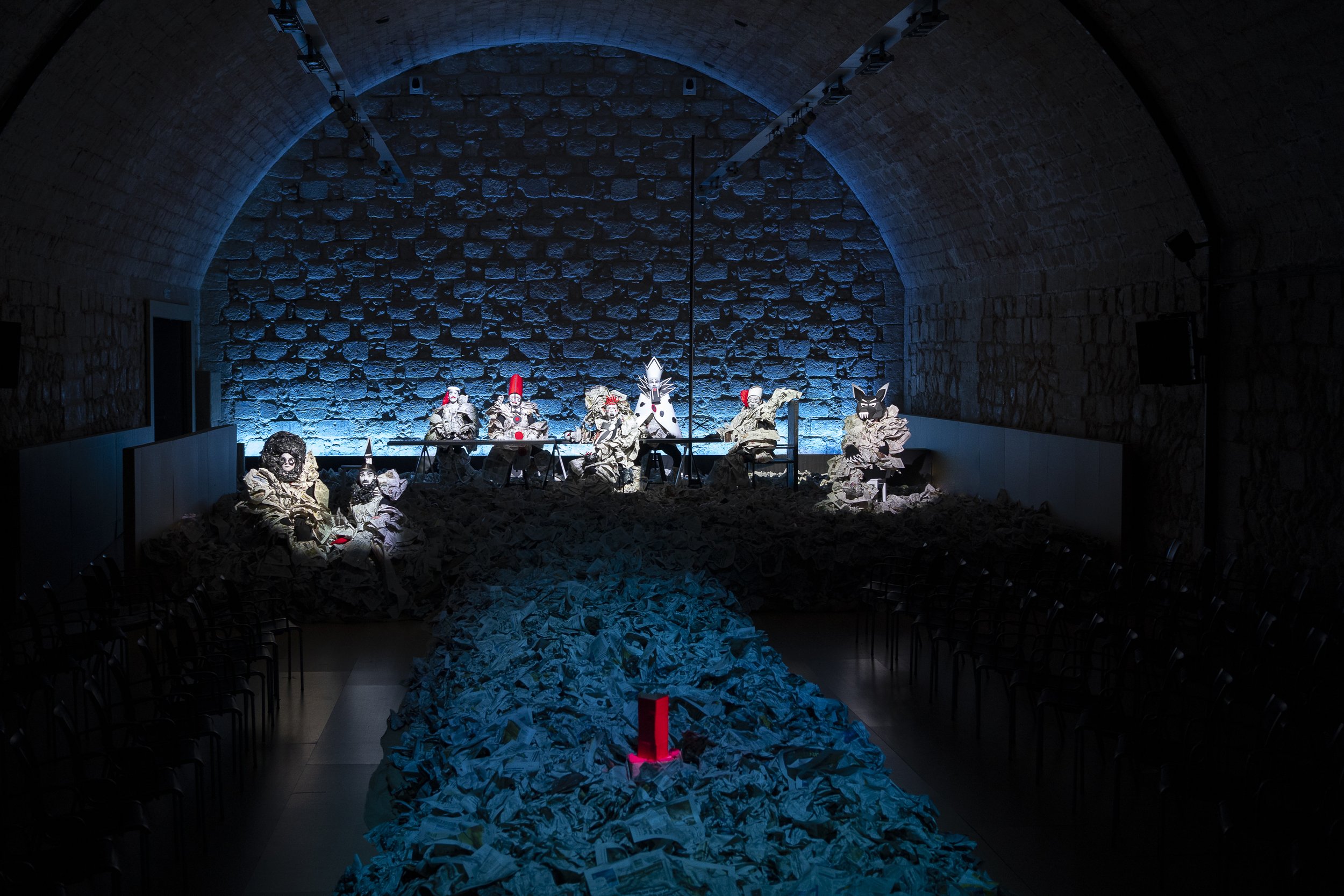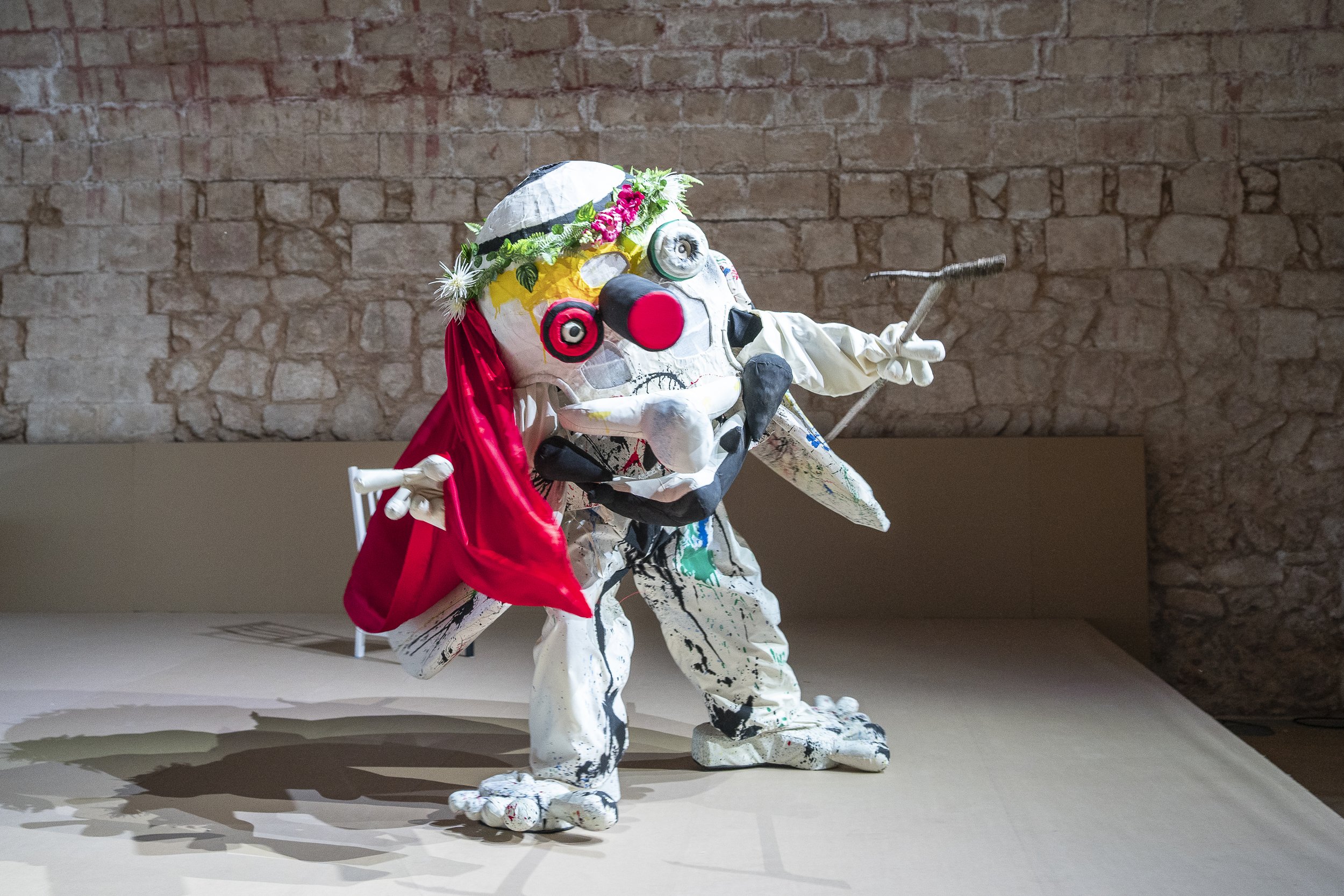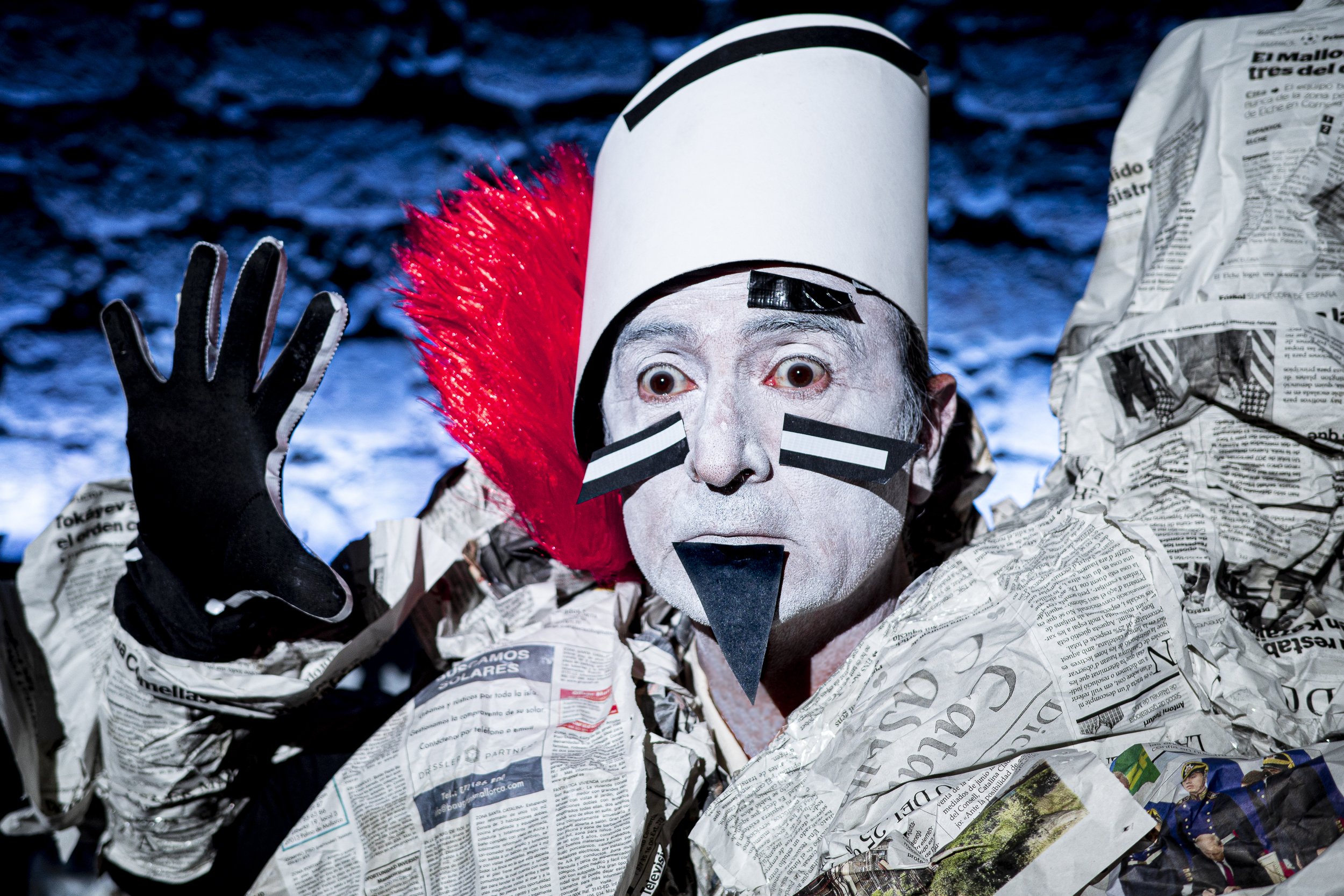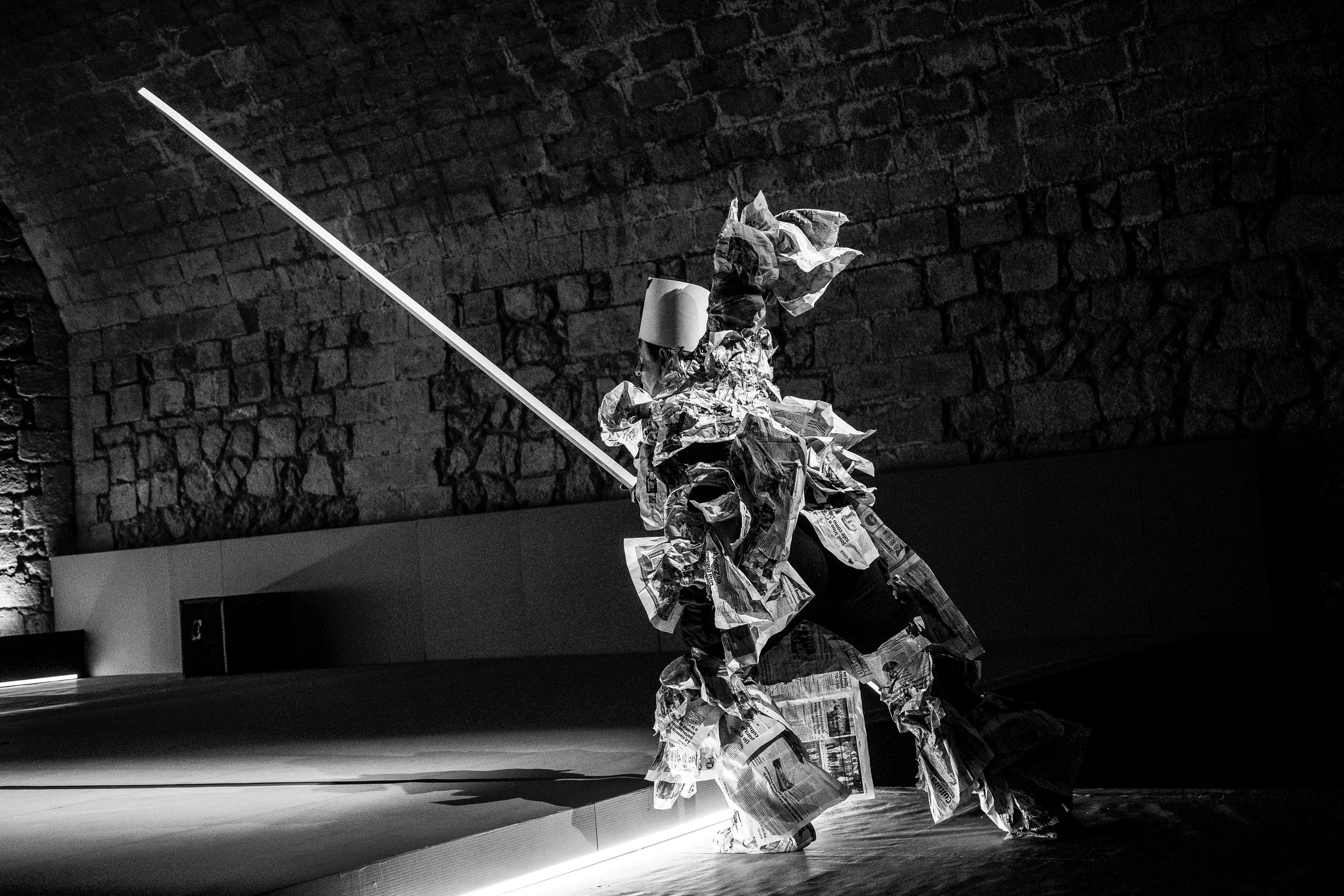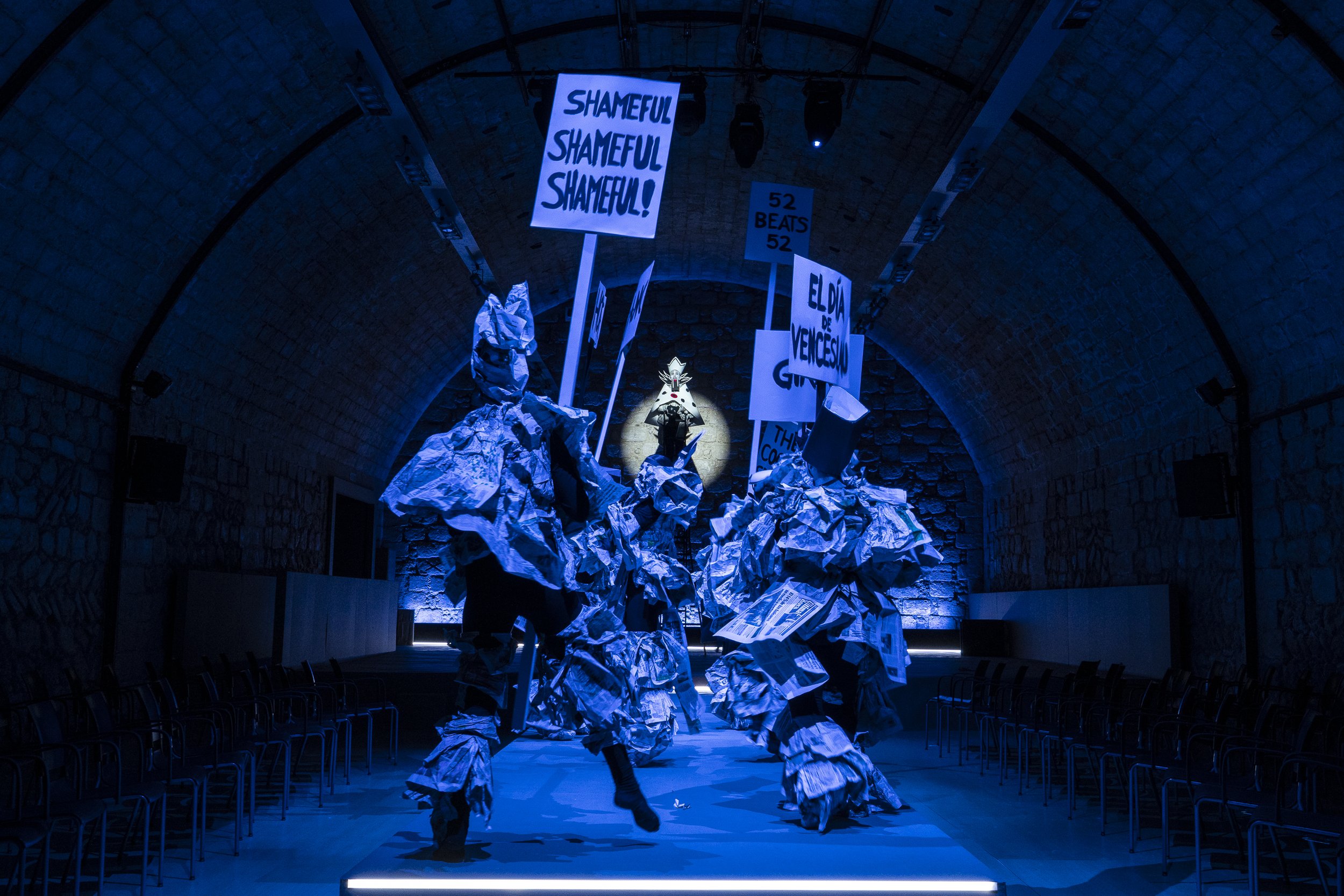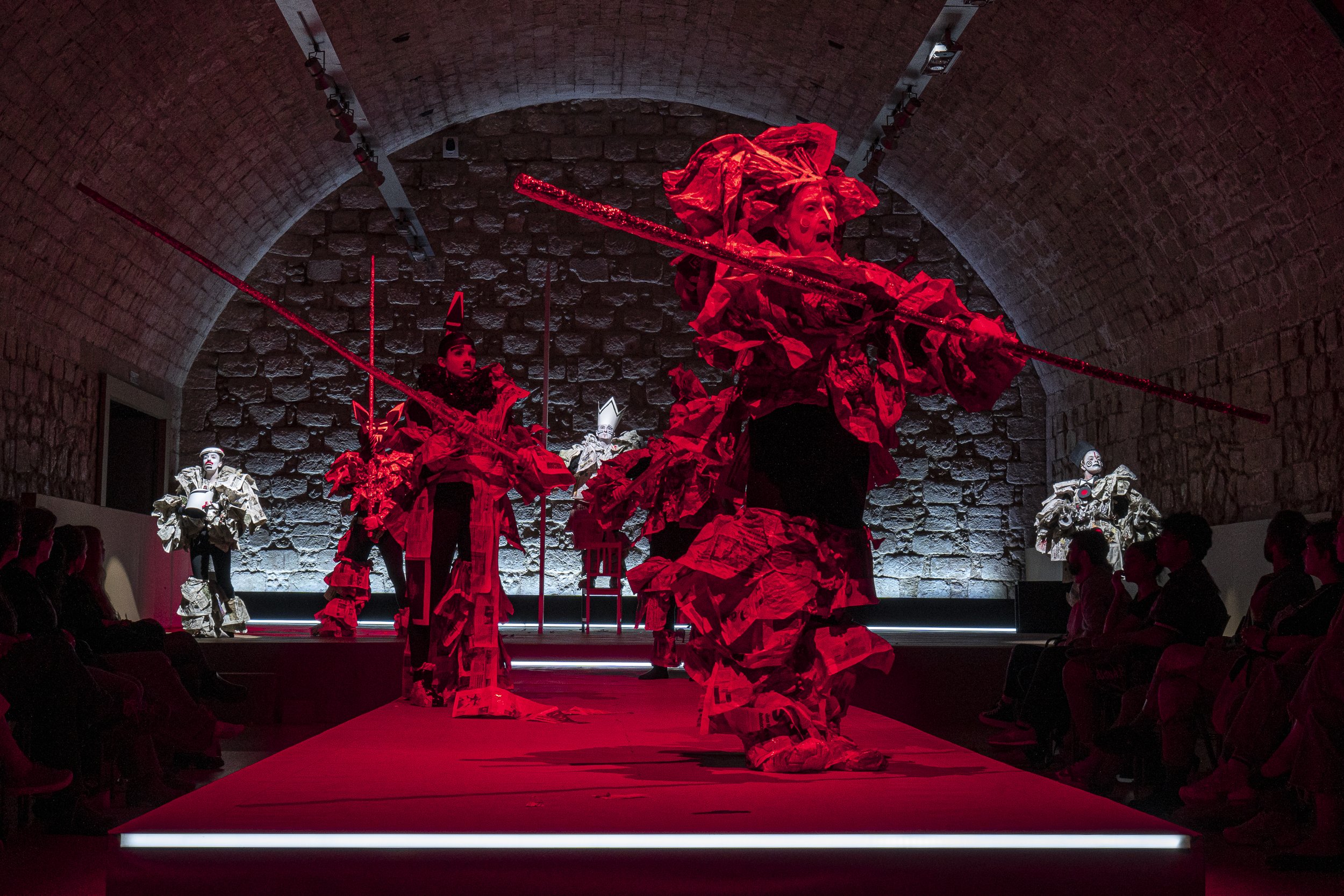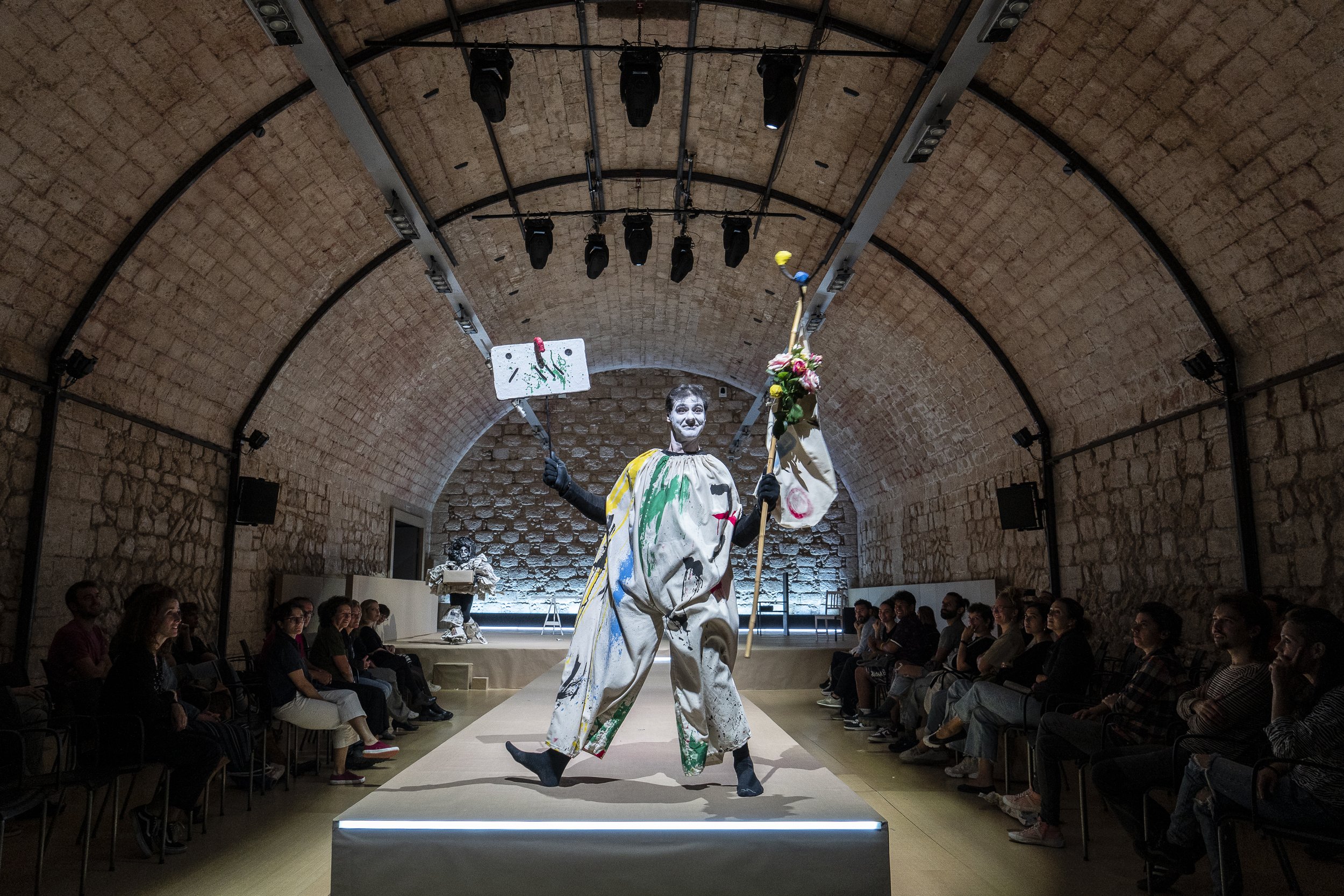Ubu
by Robert Wilson and Charles Chemin, with texts by Eli Troen, inspired by Alfred Jarry’s Ubu Roi
Costumes by Aina Moroms; Original idea by Imma Prieto
Co-Production of Es Baluard Museu d’Art Contemporani de Palma, Successió Miró, Festival Grec de Barcelona and Kunstfest Weimar
Opening on October 15, 2022 at the Es Baluard Museum, Palma de Mallorca, Spain
Ubu is inspired by the text Ubu Roi, written by Alfred Jarry in 1896, a critique of war and totalitarianism with a grotesque, dictatorial main character that is as relevant today as when it was created, and also by Joan Miró’s creations around the universe of Ubu Roi. The production is loosely linked to the exhibition “Personae. Masks Against Barbarism,“ which featured works from the Es Baluard Museum’s collection and focused in part on Joan Miró’s fascination with Jarry’s work, reflected in original drawings and lithographs in the 1960s and 70s. Eventually, Joan Miró designed human-sized puppets, which he was able to materialise in collaboration with Joan Baixas. Wilson and Imma Prieto created a new work based on Jarry and Miró, with a new interpretation that is nourished by current socio-political conflicts.
Ubu‘s starting point is the 125th anniversary of the first staging of Jarry’s seminal play Ubu Roi and the adaptation under the title Mori el Merma by Joan Miró in collaboration with the experimental theatre company La Claca, headed by Joan Baixas, which premiered first at the Teatro Principal in Palma in 1978 and later at the Liceu in Barcelona. With a marked anti-Franco focus, it counted on the collaboration of Miró in the figures of the four main characters. Jarry’s original production so offended the audience that it was shut down on the night of its premiere in Paris. The absurdities and cruelty in his work were an earlier echo of Surrealism, Dadaism and the Theatre of the Absurd. In 1978, reading it as a reflection of Franco’s autocratic regime in Spain was inevitable. Ubu was identified with Merma, in a plot in which the despot is finally overthrown by the public. In Ubu, the tyrant returns once again in the hands of Wilson under the umbrella of current paradoxes and inequalities, without forgetting the vindictive and symbolic action of putting an end to nepotism.


